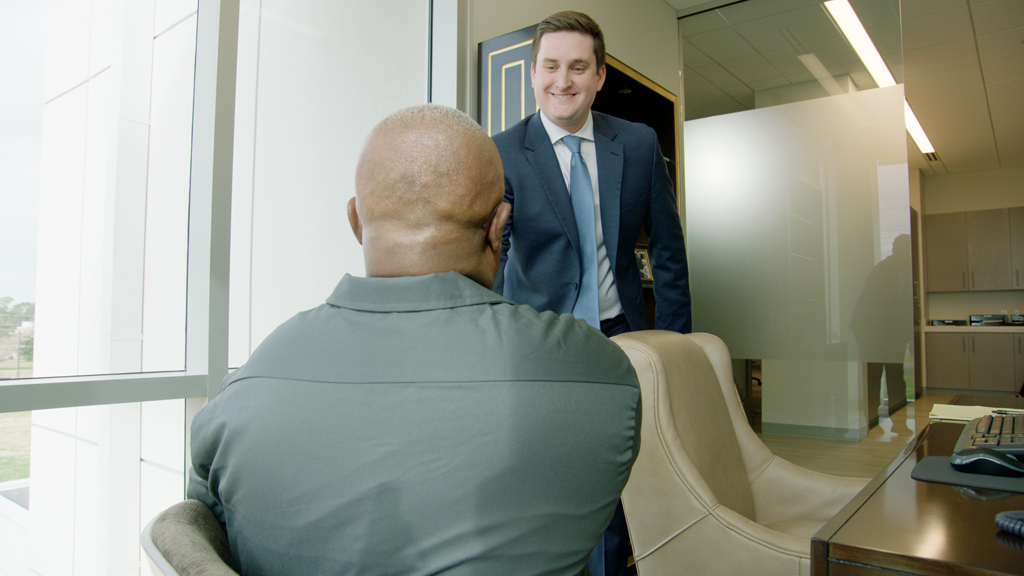How do you know if a particular lawyer is the right lawyer for you?
Not all lawyers are equal. Some may have more experience, while some may have more experience ‘specific’ to your circumstances than others. There are attorneys who routinely seek to settle cases out of court, and there are those who take their arguments before a judge and jury more often. If you select the wrong legal representation for your case, the results could range from disappointing to tragic. So, don’t be afraid to ask questions, and don’t feel the need to make an on-the-spot decision. Be observant of each lawyer’s office environment, staff courtesy, and professionalism for indicators of competence and experience. Consider the attorney’s reputation in the community. Make your decision based on sound judgment and facts.
Here are some questions you should consider asking any attorney that you are considering hiring:
- How long have you been practicing law?
You need to know their overall experience because experience is what wins and settles cases at higher levels of recovery.
- What type of cases do you normally handle?
Personal injury law is very complicated. An attorney who handles divorces, banking, real estate law, criminal law, as well as personal injury, may not have the necessary experience as an attorney who focuses solely on personal injury law. Beware of those that have practiced for many years, but have little experience and few cases completed where that lawyer sat in the “lead chair.”
- How long have you been practicing law in this community?
Having a local lawyer is often the best option. Being local means knowing that particular legal system and those within it, including opposing lawyers, doctors, experts, and judges, as well as the traits and characteristics of local juries.
- How many cases like mine have you completed?
The more the better. Simply put, attorneys focused more-so on one particular area of the law tend to be better at what they do. Today, lawyers focus their practice on specific types of cases as much as doctors.
- How many cases have you settled compared to cases brought before a judge and jury?
This tells you how willing a lawyer is to try the case of those they represent. Those that only settle cases tend to often go for the quick settlement instead of the fair settlement. Trial experience translates into higher, better settlements.
- How many cases have you tried before a judge or jury?
When a lawyer faces a judge, he’s facing one of his own. Judges are attorneys that have been elected or nominated to high positions of authority and power. A large number of judge trials show the lawyer is comfortable in trial and familiar with all local judges. This translates into insurance defense lawyers paying higher settlements. Jury trials are the ultimate test of an attorney’s legal abilities. To have tried many injuries and won most of them is the surest sign of a “great lawyer.”
- What is your winning percentage before a judge and jury?
The more winning cases a lawyer has before a judge is often a sign of how competent he or she can be in front of the ultimate decision-maker. Jury trials are more challenging and are generally reserved for larger cases. Few lawyers today have tried more than 25 jury trials; fewer still have won that number. This question exposes either the mediocrity or greatness of a trial lawyer.
- How many million-plus dollar cases have you won?
Beware of the “quick fix” lawyer. If a lawyer has seldom won million-dollar cases, this might be a sign of a quick-fix lawyer. This type of attorney tends to settle cases quickly, often for less than the true value of a case. Doing this allows them to move several cases in and out of their practice with less legal work – less of everything that we feel clients deserve. If a lawyer has primarily won million-dollar cases, that might be a sign that their focus is on cases of great value. Due to the fact that very few cases have a value of a million dollars or more, it could mean choosing that attorney will result in less attention than you deserve. A truly focused, competent lawyer will have your best interest in mind – regardless of the potential reward.
- What is the total amount of judgment awards and settlements you’ve won for clients?
Impressive lawyers have won many millions in awards and settlements; this can be a rule of measure when comparing attorneys you’re considering for representation. A great trial lawyer who has practiced for over a decade should have closed cases for tens of millions of dollars.
- If your firm takes my case, will it be assigned to another attorney or another law firm?
If the answer to this last question is “yes”, then start from the top and ask the same questions about the attorney who will be assigned to your case.
